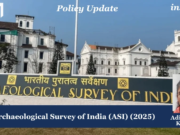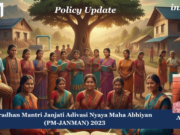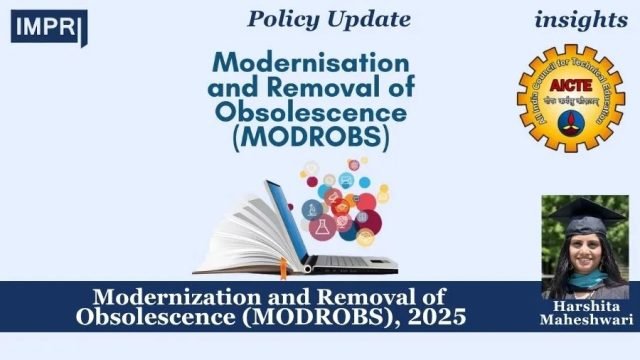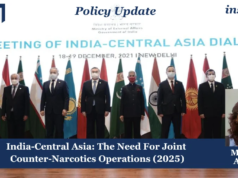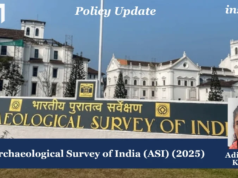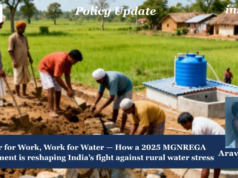Policy Update
Harshita Maheshwari
Background
Modernization and Removal of Obsolescence (MODROBS) is one of the quality improvement schemes by the All India Council for Technical Education (AICTE). It aims to modernize and eliminate obsolescence in laboratories, workshops, and computing facilities (libraries are excluded) to equip institutions for practical learning, research, and consultancy/training initiatives. It further supports innovations to ensure that the practical and project work carried out by students is contemporary and meets the needs of the industry.
The equipment financed through the scheme could be effectively used for upgrading existing laboratories, improving performance specifications of current equipment, incorporating the latest developments in the field, and replacing outdated, depreciated equipment with modern alternatives.
Benefits
The institutes are required to complete the project within 2 years from the date of receipt of funds in their account. The maximum amount of grant any institute can receive under this scheme is ₹ 20 lakhs. In case of government and government-aided institutions, 100% of the grant amount will be disbursed. Whereas, for private institutions, grants will be sanctioned in the form of 80% of the sanctioned amount as an advance, followed by 20% as reimbursement on submission of the Utilization Certificate and other supporting documents as specified in the terms and conditions of MODROBS.
Eligibility
The scheme focuses on addressing the needs of the following institutions –
- Aspiring Institutions
- AICTE-approved technical institutions/university departments with at least 10 years of existence (at least 5 years if the institute is located in a rural area).
- The institute must have more than 50% admission for the past 3 years.
- The institute must not have been sanctioned for any MODROBS project earlier.
- A maximum of 3 proposals per institute per year will be accepted (not more than one proposal is allowed from the same department).
- Regular Institutions
- AICTE-approved technical institutions/university departments with at least 10 years of existence (at least 5 years if the institute is located in a rural area) that have live NBA accreditation.
- The institute should have had an admission rate of more than 60% for the past three years.
- The department applying must not have received the MODROBS project in the last two years, meaning departments that have received a grant in the last two years are not eligible.
- A maximum of 3 proposals per institute per year (including previously sanctioned but incomplete proposals) will be considered.
- Preference will be given to institutions that involve industry in the modernization of the laboratory.
- Polytechnic Institutions
- The polytechnic institute must be approved by AICTE and have at least 10 years of existence (at least 5 years if the institute is located in a rural area).
- The institute should have more than 60% admission for the past 3 years.
- A maximum of 3 proposals per institute per year will be accepted (not more than one proposal from the same department).
Performance and Impact Analysis (2019-20 to 2023-24)
Figure 1: Trends in the number of MODROBS projects funded and the amount released (in ₹ Crores) from 2019–20 to 2023–24. Data sourced from AICTE Annual Reports (2019-20, 2020–21, 2021–22, 2022–23, 2023-24).
The Modernization and Removal of Obsolescence (MODROBS) under AICTE has experienced a significant shift in performance over the past five years. As shown in Figure 1, the number of funded projects remained stable at around 279 projects per year during 2020–21 and 2021–22, indicating strong institutional uptake during the early NEP implementation phase. However, by 2023–24, project approvals dropped to 214, and more critically, the funding allocation saw a steep decline, falling from ₹34.71 crore in 2019–20 to just ₹2.37 crore in 2023–24, a contraction of over 93%.
This reduction in funding suggests a marked slowdown in financial commitment to lab modernization, especially after 2021–22. Despite the consistent project count in the earlier years, the average allocation per project decreased significantly, indicating either smaller grants or deferred disbursement. This may reflect shifting policy priorities within AICTE, possibly toward emerging thematic areas such as AI and IoT, or toward targeted rural initiatives as seen in the 2024 announcement of revamped MODROBS with a rural-AI focus.
The AICTE has re-launched the Modernization and Removal of Obsolescence Scheme (MODROBS) for the academic year 2025-26, emphasizing an AI-integrated focus and enhanced funding support, with a maximum grant of ₹30 lakhs (up from ₹20 lakhs). This revamp now provides increased opportunities for government, rural, and aspirational district institutions to upgrade their laboratories. The scheme aims not just to replace outdated lab equipment but also to establish AI-integrated, cross-departmental innovation hubs. Furthermore, facilities will be accessible to external users, including schools and neighboring colleges.
Testimonials
“This initiative has significantly transformed our laboratory, enhancing both the teaching and learning experiences for students and faculty. We are grateful for the support and resources provided, and we look forward to continuing our journey towards academic excellence.”
Government Polytechnic Jalgaon, Maharashtra
“The updated and modernized machines have provided students with access to the latest technology and equipment. This has enriched their learning experience, allowing them to gain hands-on experience with state-of-the-art tools and techniques, sincerely thanking AICTE for the support.”
Virudhunagar S Vellaichamy Nadar Polytechnic College, Tamil Nadu
Emerging Issues
- According to the Annual Reports published by AICTE, there is an inconsistency in the number of projects funded across the years (2019-20 to 2023-24). This disrupts the lab modernization momentum and institutional development. Therefore, AICTE can focus on restoring the annual cycle of funding projects and releasing the amount by fixing timelines for proposals and timely releasing and disbursement of the grant amount.
- The analysis also points towards a lack of impact monitoring and outcome reporting, with little or no information on lab creation and learning outcomes. This results in defeating the purpose of the scheme and the inability to evaluate the real educational benefits. To overcome this concern, AICTE can specifically focus on annually reporting this scheme by considering some key performance indicators. This can additionally be supported by Public-Facing Dashboards to enhance transparency and accountability.
- Aspirational or rural institutions often lack proposal writing and project management capacity, which could prevent them from reaping the benefits of the scheme. This results in widening the infrastructure gap and skews towards the well-established institutions. AICTE can address this issue by organizing proposal writing workshops and training to provide necessary support and resources.
Way Forward
The purpose of MODROBS was to revitalize technical education by removing obsolete equipment and modernizing laboratories. According to the analysis, over the last five years (2019-20 to 2023-24), the scheme has funded more than 700 projects, directly enhancing student access to practical learning environments. However, the recent funding slowdown and lack of real-time impact tracking call for a need for revision.
Way ahead, MODROBS should be repositioned as a flagship capacity-building initiative within the NEP 2020 framework. This requires consistent funding, transparent data systems, and stronger links to emerging technology domains like AI, robotics, and automation. Meanwhile, the existing policy to MODROBS 2.0, which includes performance-based grants, rural-first incentives, mandatory I-STEM integration, and public dashboards. The scheme can substantially contribute to India’s vision of inclusive, future-ready, and innovation-driven technical education, along with the involvement of a variety of stakeholders, by considering these transformative reforms.
References
- AICTE-India. (n.d.). https://www.aicte-india.org/downloads/modrobs6.pdf
- Annual Report 2019-20. https://www.aicte-india.org/sites/default/files/AR/AICTE_AR_201920.pdf
- Annual Report 2020-21. https://www.aicte-india.org/sites/default/files/AR/AICTE-Annual-Reports.pdf
- Annual Report 2021-22. https://www.aicte-india.org/sites/default/files/AR/AICTE_Annual%20Report_2022_English.pdf
- Annual Report 2022-23. https://www.aicte-india.org/sites/default/files/AR/2nd%20REVISED__AICTE_Annual%20Report_2022-23.pdf
- Annual Report 2023-24. https://www.aicte-india.org/sites/default/files/report/Annual%20Report%202023-24.pdf
- Institutional development schemes: Government of India, All India Council for Technical Education. Institutional Development Schemes | Government of India, All India Council for Technical Education. https://aicte-india.org/schemes/institutional-development-schemes
- Monalisa. (2025, April 26). AICTE MODROB Scheme 2025: Proposal, last date, AICTE funding schemes. Government schemes. https://www.egovtschemes.com/modrob/
About the contributor: Harshita Maheshwari is a research intern at IMPRI. She graduated with a Master of Public Administration, concentrating in Economic and Financial Policy from Cornell University and a Master of Arts in Applied Economics from Christ University.
Acknowledgement: The author sincerely thanks Aasthaba Jadeja and IMPRI fellows for their valuable contribution.
Disclaimer: All views expressed in the article belong solely to the author and not necessarily to the organisation.
Read more at IMPRI:
Digitizing Memory, Democratizing Access: Abhilekh Patal, 2015
Tejas Portal (2021): Powering India’s Data-Driven Governance



